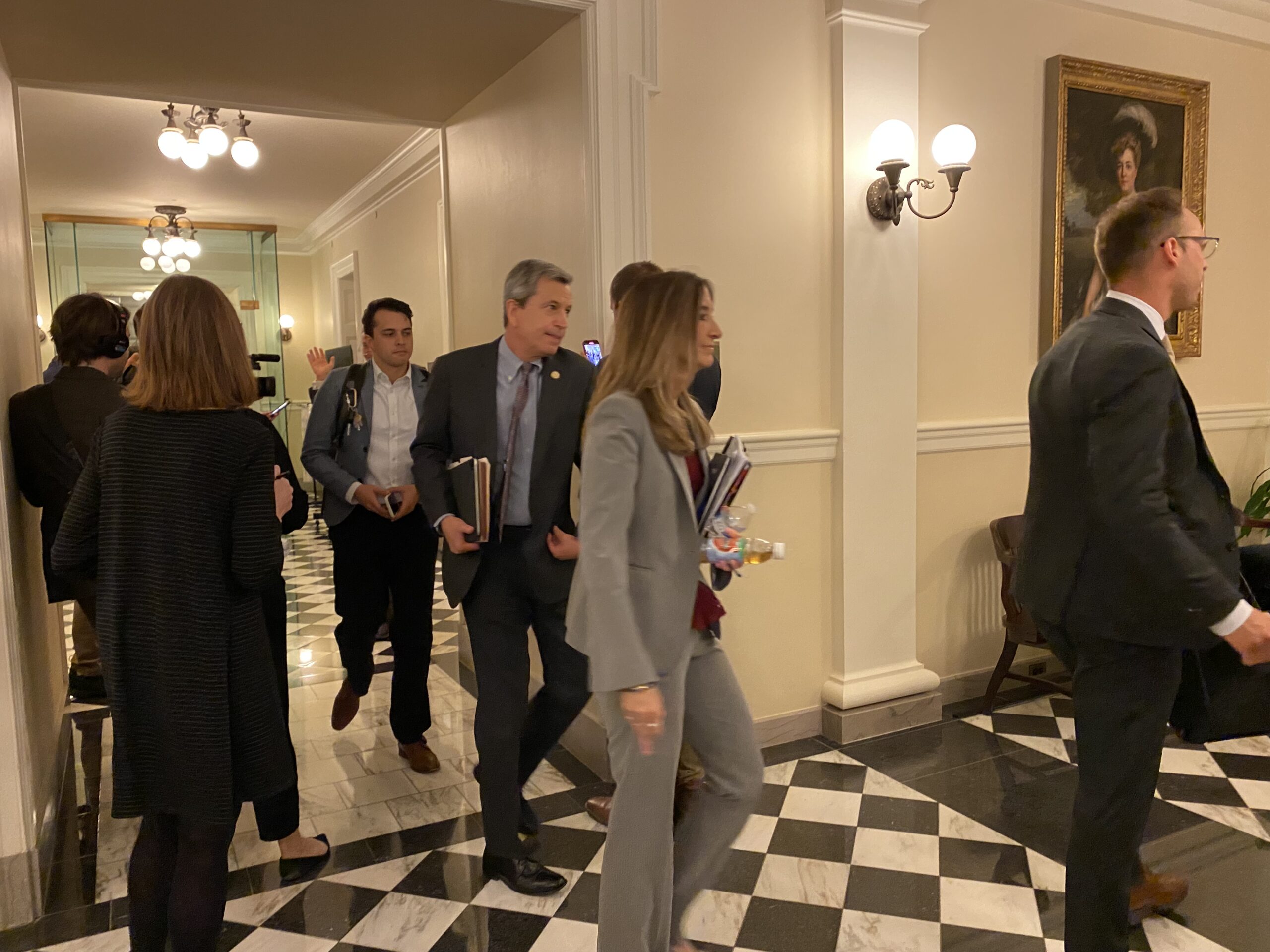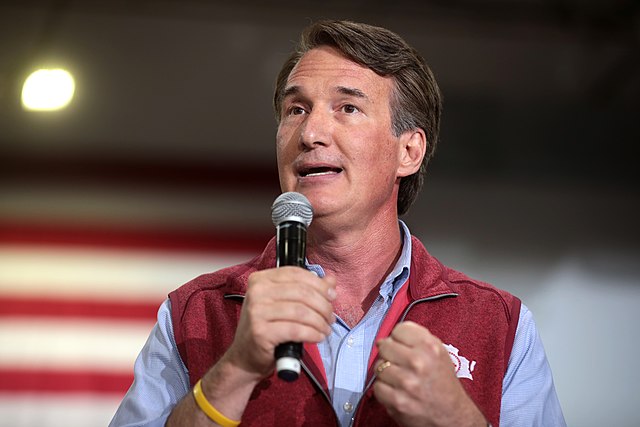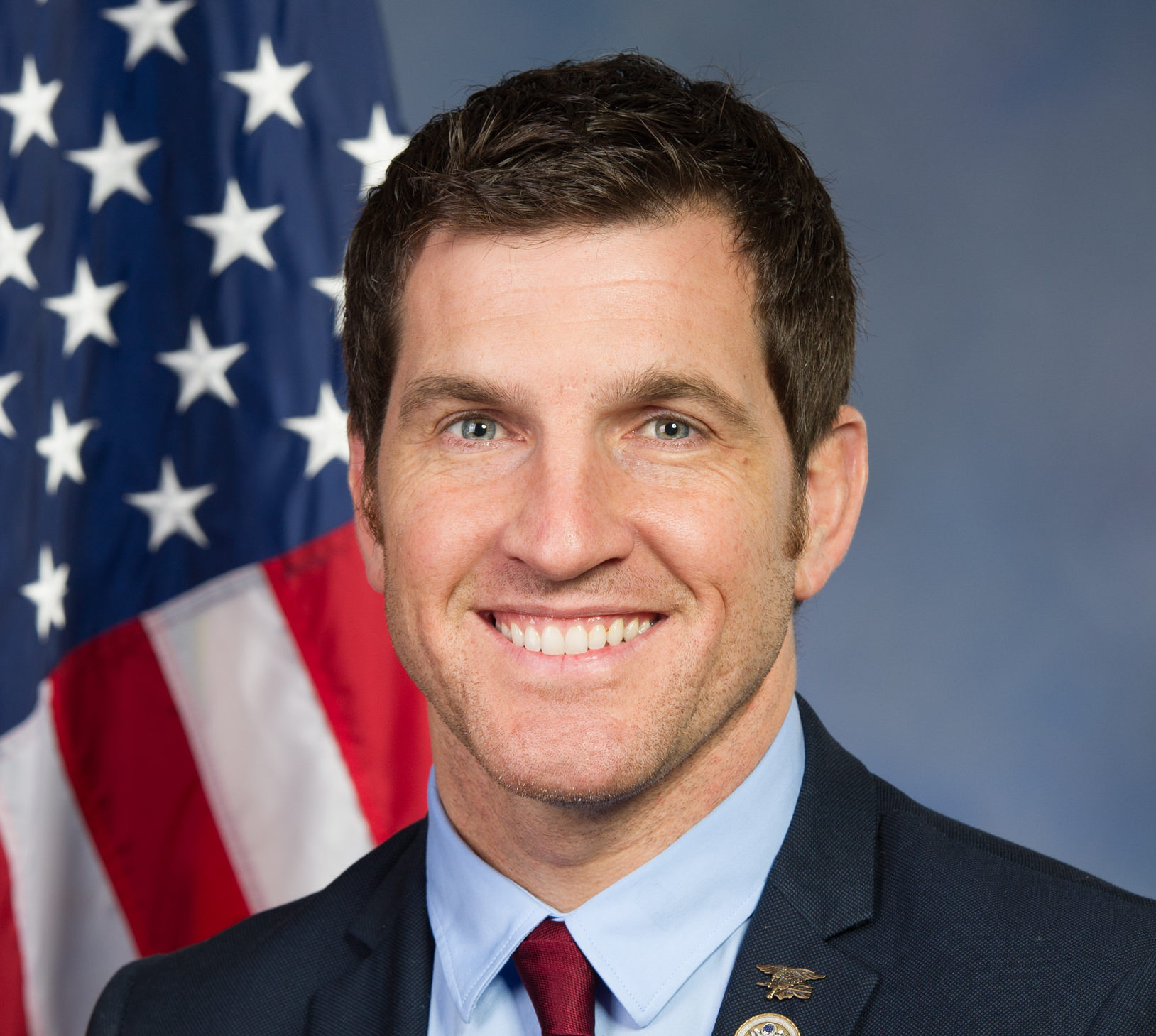Two Virginia governors gave Juneteenth speeches over the weekend: Governor Glenn Youngkin spoke at Fort Monroe on Sunday, and former governor, current U.S. Senator Tim Kaine (D-VA) gave the keynote speech at a Loudoun NAACP Juneteenth event Monday. Both men highlighted the role of Virginia as the site where African slaves first arrived in 1619. Youngkin focused more on the contrast between those actions and American ideals that the country is still striving for, while Kaine focused on the history of slavery and emancipation in America while referring to Governor Glenn Youngkin’s educational policy without directly naming the governor.
“We remember that here at Fort Monroe, as we’ve just heard, in 1619, the evil of slavery arrived on the shores right here, right here where we’ve appropriately gathered. And today, we also celebrate the liberation of the enslaved, as word arrived 1,400 miles away and 246 years later at the port in Galveston, Texas, where General Gordon Granger delivered the unknown news of the emancipation of the enslaved on June 19, 1865,” Youngkin said.
Youngkin said the history of slavery is a remaining scar that the U.S. should never forget, but he also looked to the present and the future.
“We today are still comprised and led by imperfect men and women, and therefore we still are, and always will be, a nation, seeking, striving, and inevitably falling short, to be that more perfect union,” Youngkin said.
“I want our children to learn our history, all of our history, the good and the bad. I want us to learn from past mistakes,” he said.
In his speech Monday, Kaine made the case that although slavery has existed throughout history, the colonies and then the United States created their own form of slavery through a series of laws and practices pioneered in part in Virginia.
“We didn’t inherit slavery. We created it,” Kaine said.
“Now everything I just told you is, I’m sure, a ‘divisive concept’,” Kaine said, referring to Youngkin’s efforts to ban Critical Race Theory and “divisive concepts” from schools.
Kaine said teachers would worry teaching what he said in his speech because “someone might call it a ‘divisive concept’ and call you in on a tip line.”
He criticized the administration’s refusal to reveal details of the tip line reports even after Freedom of Information Act requests from the media.
“Let’s always think about Juneteenth as a freedom celebration, but also as a truth-telling celebration. ‘You shall know the truth and the truth shall set you free.’ But knowing that isn’t enough,” Kaine said.
He said, “We have to acknowledge that not everybody wants us to know the truth, and then be earnest, and curious, and research, and dialogue so that we can figure out the truths that you should hold dear. And then we have to act on it in Congress and city councils and school boards.”
This article originally appeared in The Virginia Star. The opinions expressed in this article are those of the author and do not necessarily reflect the positions of The Republican Standard. Republished with permission.





